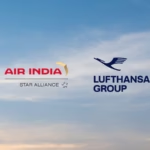How hard is it to discuss the roaring developments in aviation without mentioning COVID-19? We took a look at how machine learning might change the way we fly.
AI & Machine Learning
With the emergence of artificial intelligence and machine learning technologies, not so much, by the looks of it. Because, as the trends in technology seem to suggest, machine learning is set to change the way we fly yet again. In fact, much of the sector’s post pandemic recovery will likely rest upon the improvements that come with machine learning. In the words of the IATA’s white paper “AI in Aviation”
“AI is coming and it will have no mercy for any obstacles on its way. Companies can choose to resist and maintain status quo to extend their survival period, or embrace AI and be part of the ongoing revolution.”
Using the tools provided by AI, “machine learning” is the technology that is “self learning”, which simply means that it can improve its algorithms with the arrival of new data. And, the more we fly, the more the data the computers have to help in decision-making. Everything from how tickets are priced, to the routes that operate at a specific time, to the range of items available on the onboard menu, will all be shaped by a team of clever machines that can learn and relearn their algorithms. Because, the power in machine learning, is such that it can analyse and process a vast amount of data, from countless sources, in less than a few seconds. What would once take days, several data wizards and still present many inaccuracies, will now be done flawlessly and cheaply, providing a vast trove of data to inform the many decisions that airlines make.

Contactless Boarding
Whilst Machine Learning will revolutionise multiple stages in our flying journey, the boarding process may see the most noticeable changes. Currently, Delta Airlines is trialling its “biometric boarding” system, which can verify your identity by merely scanning your facial structure. Powered by the millions of selfies you have taken, and with tools like Face Unlocking on iPhones, special cameras will co firm who you are without border agents needing to touch your passport. As airlines work to reduce human contact as much as possible, this technology couldn’t have come at a better time.
Evidently, Machine Learning is set to have a momentous impact in the way airlines operate. Will they cling on to the old ways of doing business , or will they embrace the many perks of new technologies and succeed in the next era of aviation?









